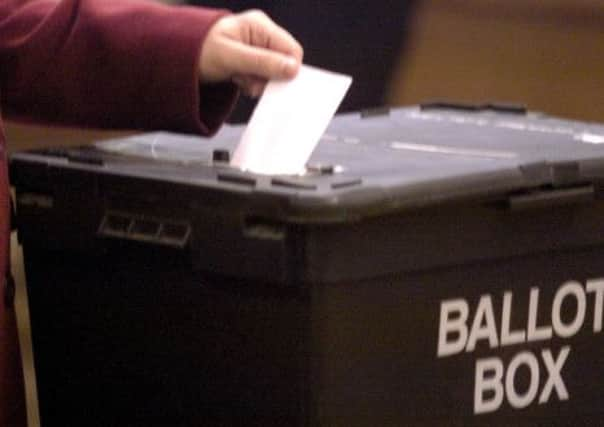Guy Lodge and Sarah Birch: A vicious cycle that threatens our democracy


The fact of the matter is that politicians are more likely to prioritise the interests of people who vote than people that don’t. And IPPR’s analysis for a forthcoming report shows that older people are much more likely to go to the polls than younger people. At the 2010 election, for example, around 76 per cent of 60-year-olds voted, whereas turnout among the 18-24 age group was just 44 per cent.
So it is no coincidence perhaps that the incoming government, faced with tough spending choices, scrapped the Education Maintenance Allowance but preserved universal benefits for the elderly.
Advertisement
Hide AdAdvertisement
Hide AdOf course it is just these sort of decisions that young people point to when they say politicians do nothing for them. But if their response is then not to vote, the vicious cycle of under-representation leading to disaffection leading to further under-representation gets worse and worse.
We’ve got to break this cycle and stop growing political inequality in Britain undermining the health of our democracy. In 1970 there was an 18-point turnout gap between 18-24 year olds and those aged over 65. By 2005 this had more than doubled to over 40 points. There is also a dramatic social class divide in electoral participation which has been widening in recent decades. In 1987, the difference between the income group with the highest turnout rate and the group with the lowest rate was only four percentage points. By 2010 this had jumped to 23 percentage points. People in the highest income group were 43 per cent more likely to vote than those in the lowest.
So what, if anything, can be done to reverse this worrying trend? In our view the best way would be to introduce compulsory first time voting. Young people when they turn 18 and become eligible to vote would be required to go to the polling station and either cast a vote for one of the candidates or tick a box saying “none of the above”. Failure to do so would result in a small fine.
This small measure would have a number of benefits which would all be mutually reinforcing.
Advertisement
Hide AdAdvertisement
Hide AdFirstly, it would help to inculcate democratic participation among young people. The hope would be that having voted once, the habit of voting would become ingrained, and these first time voters would carry on voting at future elections. This is important because there is now clear evidence that younger voters who don’t vote are less likely than previous generations to vote regularly as they move into middle age.
Secondly, if young people from poorer backgrounds were required to vote this might encourage their non-voting parents and grandparents to be exercise this democratic right, thereby closing the political inequality gap between classes as well as generations.
Thirdly, if politicians knew that young people would be voting in large numbers at their first election they could not afford, as now, to ignore their concerns and interests in favour of those of groups who do vote in large numbers.
With the school leaving age being raised to 18, schools themselves should be the place where young people cast their first vote. Knowing you have to vote could transform the way politics is taught and experienced in schools.
Advertisement
Hide AdAdvertisement
Hide AdAre there any problems in making voting mandatory for young people? The familiar concern is that it is an infringement of civil liberties. This is what has prevented us from introducing compulsory voting across the board, even though we know from other countries that it is successful in boosting turnout. Approximately a quarter of all democracies in the world today employ some form of compulsory voting, and many have adopted the measure in the last few decades. Turnout in Australia has averaged 94.5 per cent in the 24 elections since 1946.
Our proposal is limited in nature and strikes a balance between freedom and responsibility. It would only impact on young people and this is a group of citizens of whom many things are required.
The fact is that we need to do something to arrest the growing political inequality this country is facing. A number of different strategies have been used to try to break this cycle, but not one of them has proved effective. Something more radical is therefore called for. Hence compulsory first-time voting, which in our view could well be very effective in engaging young people in politics and engaging politicians in young people.